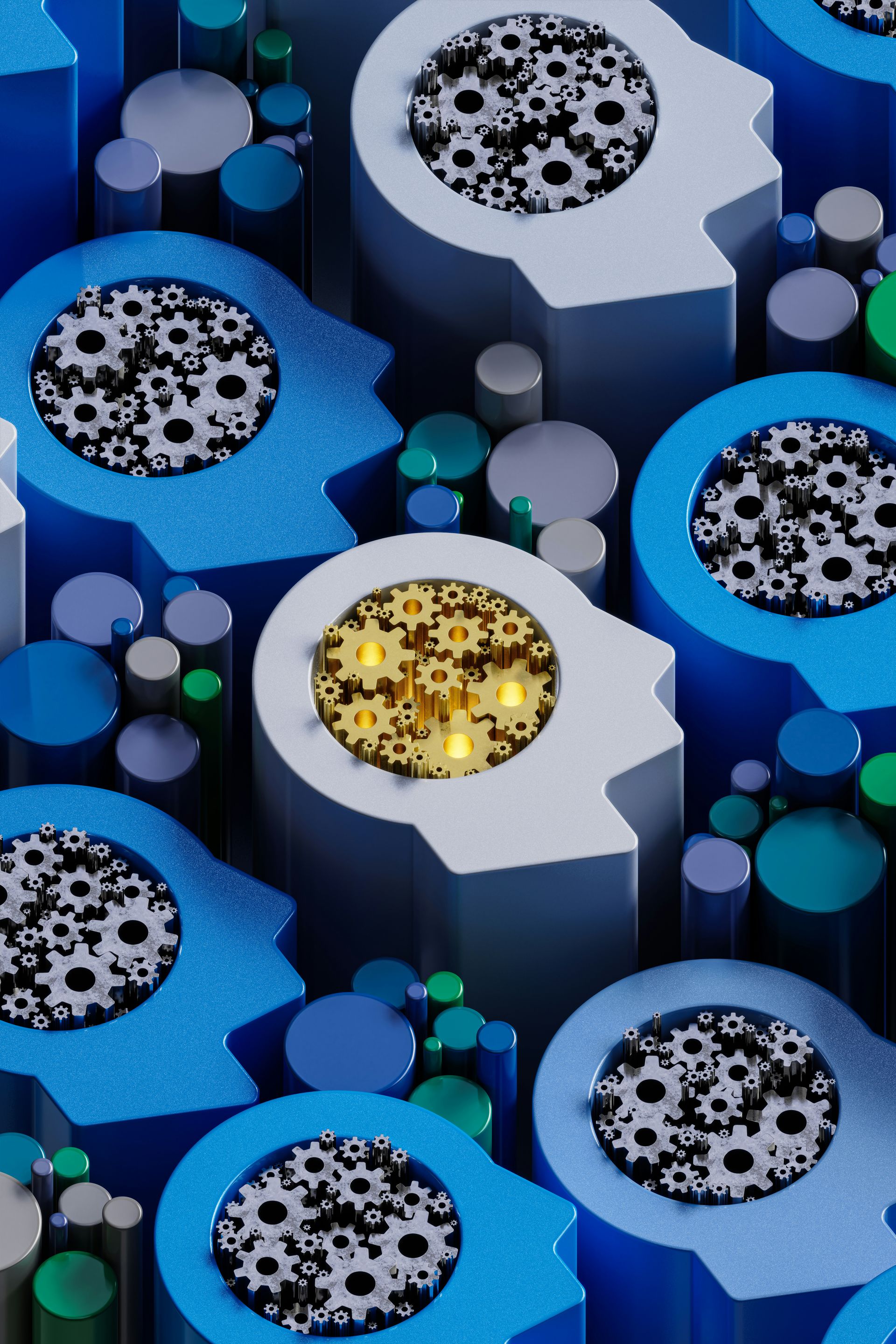
Happiness is a term we hear often, especially during the holiday season. From cheerful carols to sparkling lights, the season practically demands that we be happy. But let’s face it—happiness isn’t something we can just snap our fingers and create. Life gets complicated, and stress doesn’t take a holiday. The good news? Happiness doesn’t have to be elusive. It’s not tied to picture-perfect moments or even to the season itself.
Happiness is something we develop, not just in December but throughout the year—even when life throws curveballs.
Happiness Definition: An Emotion, Not a Destination
Happiness is a feeling of contentment, joy, or satisfaction that comes from within. It’s not just about big, exciting moments—it can also be found in the little things, like sharing a laugh, enjoying a good meal, or spending time with loved ones. While happiness often feels like it depends on what’s happening around us, it’s more about how we experience and respond to life. It’s a mix of positive emotions and a sense of purpose that makes life meaningful and enjoyable.
Also, happiness is an emotion, not a permanent state of being. It’s fleeting, like joy, excitement, or even sadness. While we often strive to "be happy," it's important to recognize that happiness naturally ebbs and flows. By letting go of the idea that we should always feel happy, we give ourselves the freedom to enjoy it when it’s there and work on creating the conditions for it to return.
Happiness vs. Joy
You might wonder: aren’t happiness and joy the same thing? Not exactly. Happiness is often tied to external circumstances—a kind word, a fun outing, or a special moment. Joy, on the other hand, is deeper. It’s a sense of contentment and peace that can exist even when life isn’t perfect.
To find happiness during the holidays and beyond, focus on cultivating joy. Find meaning in your relationships, purpose in your actions, and peace in your heart. Happiness will follow.
Happiness Is a State of Mind

Have you ever noticed how some people seem happy no matter what’s happening around them? That’s because happiness is a mindset. While life will always throw challenges our way, how we perceive and respond to those challenges can make all the difference. We can cultivate a happier and more resilient outlook by shifting our thoughts, habits, and attitudes.
Here’s how:
Reframe Challenges
Instead of seeing obstacles as roadblocks, view them as opportunities to grow. Ask yourself: What can I learn from this? How can I come out stronger? Reframing doesn’t erase the difficulty but allows you to focus on progress rather than setbacks.
Surround Yourself with Positivity
Your environment has a significant impact on your mindset. Choose to spend time with people who inspire, encourage, and uplift you. Limit interactions with those who consistently bring negativity. Surround yourself with reminders of what brings you joy—photos, favourite books, or meaningful quotes. "Happiness is a choice, not a result. Nothing will make you happy until you choose to be happy." – Ralph Marston.
Practice Self-Compassion
It’s easy to be our own worst critic, but self-criticism often fuels unhappiness. Instead, treat yourself as you would a dear friend—with kindness, patience, and understanding. Acknowledge your efforts, even if the outcome isn’t perfect.
Set Intentions Daily
Start your day by choosing a positive focus. Setting an intention can anchor your thoughts, whether you find moments of gratitude, stay calm in stressful situations, or simply appreciate the beauty around you.

Focus on What You Can Control
Happiness often suffers when we fixate on things outside our control. Instead, shift your energy toward what you can influence—your attitude, actions, and reactions. This mindset helps you feel empowered rather than helpless.
Celebrate Small Wins
Don’t wait for big milestones to feel happy. Instead, celebrate the little victories, like finishing a task, solving a problem, or even taking time to rest. Recognizing small successes creates a positive ripple effect throughout your day.
Engage in Activities That Bring You Happiness
Carve out time for hobbies and interests that make you happy, whether reading, cooking, gardening, or simply spending time outdoors. These activities recharge your emotional batteries and contribute to a positive state of mind.
Practice Gratitude Daily
Gratitude is a powerful happiness booster. Reflect on what you’re thankful for each day, no matter how small. Keeping a gratitude journal can help train your brain to focus on the positives in life.
Limit Comparison
The quickest way to feel unhappy is by comparing yourself to others. Social media often amplifies this, presenting a curated version of people’s lives. Remind yourself that everyone has struggles, and your journey is uniquely yours.
Embrace Imperfection
Happiness doesn’t require everything to be perfect. Perfectionism can rob you of joy. Embrace life's messy, unpredictable nature, and find humour or gratitude in the imperfections

Move Your Body
Exercise is a natural mood booster. Physical activity releases endorphins, reduces stress, and improves overall well-being. You don’t need to run a marathon—walking, dancing, or even stretching can work wonders.
Practice Mindfulness
Mindfulness involves being fully present in the moment without judgment. It helps you savour life’s small pleasures, whether enjoying your morning coffee or listening to your child’s laughter. Meditation, deep breathing, or simply pausing to take in your surroundings can enhance mindfulness.
Create a Positive Routine
Consistency helps reinforce happiness. Build daily habits that support your well-being, such as journaling, meditating, or enjoying a quiet moment of reflection. Over time, these routines become a source of stability and joy.
Happiness as a state of mind doesn’t mean ignoring life’s hard times or pretending everything is perfect. It means focusing on what’s good, appreciating the little things, and creating habits that nurture your well-being. With a positive mindset, you can cultivate happiness no matter what life brings.
Happiness During the Holidays
The holidays can be both magical and overwhelming. Between everything that has to get done, family gatherings, and pressure to make everything perfect, happiness can sometimes feel out of reach. But here’s the secret: happiness during the holidays doesn’t come from perfectly cooked meals or ideal gifts. It’s found in the quiet moments—the laughter around the table, the shared traditions, and the gratitude for what we have.
Instead of chasing a Hallmark movie version of happiness, embrace the imperfections. Burnt cookies? Laugh about it with your kids. Is a snowstorm cancelling plans? Turn it into a cozy movie night. Happiness isn’t about avoiding challenges but finding joy despite them.
Happiness is recognizing and making the most of what you have, even when life doesn’t look like a Pinterest board, during the holidays and throughout the year.
Happiness When You’re Alone During the Holidays
The holidays can feel especially tough when you’re alone. Social media bombards us with images of family gatherings and festive fun, making it easy to feel left out. But being alone doesn’t mean you have to miss out on happiness.
- Create your own traditions: Cook a favourite meal, decorate your space, or watch a movie marathon. Traditions don’t need a crowd to be meaningful.
- Connect in other ways: Call or video chat with loved ones. If that’s not possible, volunteer at a local charity. Helping others can be incredibly fulfilling.
- Treat yourself: Use this time to focus on self-care. Take a bubble bath, start a new book, or do something creative that brings you joy.
- Reflect and plan: Use the quiet time to set goals and reflect on the year's joyous moments.
Happiness during the holidays isn’t about who’s around you but how you spend time!

Teach Children Happiness by Modelling It Yourself
Teaching children about happiness is one of the greatest gifts you can give them; the best way to do this is by modelling it yourself. Kids learn by watching, so showing them how to find joy in small moments, practice gratitude, and handle challenges with a positive mindset sets a powerful example.
Living these habits teaches them that happiness isn’t about constantly feeling good but building a mindset that welcomes joy and resilience. It's also important to show them that it's okay to experience different emotions and that happiness will return with time and practice.
Conclusion
Happiness isn’t just for the holidays, and it’s not reserved for perfect moments or people. It’s an emotion, a mindset, and sometimes, a choice. Whether navigating the chaos of a busy holiday season, spending it alone, or just trying to find joy on a random Tuesday, remember happiness is built in the small moments.
And when we model happiness for our children, we’re not just helping them smile today. We’re teaching them how to create a life filled with joy, gratitude, and resilience.
Because, at the end of the day, happiness isn’t found in the big things—it’s built in the little ones.
"Remember, change begins with ourselves.
Put your knowledge into action and reach your full potential ."
Wishing you heartfelt warmth
and support on your parenting journey!
Cathy
Wish Setting Boundaries Was Easier?
Grab your FREE 7-day guide and create boundaries that bring you peace and balance!
All Rights Reserved | Cathy Barker
Site Designed and Developed by Client First Web Design & Graphics
